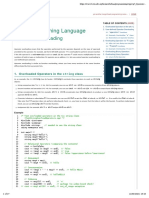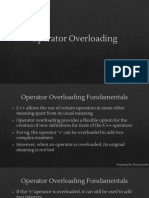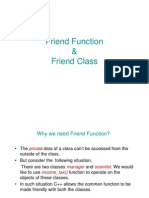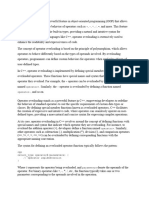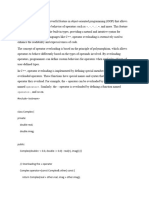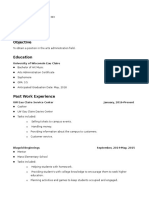0% found this document useful (0 votes)
21 views34 pages04 Operators
This document provides an overview of operator overloading in C++, including definitions, guidelines, and examples of how to overload various operators for user-defined types. It covers both member and non-member functions, limitations, and the use of friend functions for accessing private data. Additionally, it includes exercises for implementing operator overloading in classes such as Fraction, Vector, and Matrix.
Uploaded by
minhvan9602Copyright
© © All Rights Reserved
We take content rights seriously. If you suspect this is your content, claim it here.
Available Formats
Download as PDF, TXT or read online on Scribd
0% found this document useful (0 votes)
21 views34 pages04 Operators
This document provides an overview of operator overloading in C++, including definitions, guidelines, and examples of how to overload various operators for user-defined types. It covers both member and non-member functions, limitations, and the use of friend functions for accessing private data. Additionally, it includes exercises for implementing operator overloading in classes such as Fraction, Vector, and Matrix.
Uploaded by
minhvan9602Copyright
© © All Rights Reserved
We take content rights seriously. If you suspect this is your content, claim it here.
Available Formats
Download as PDF, TXT or read online on Scribd
/ 34


